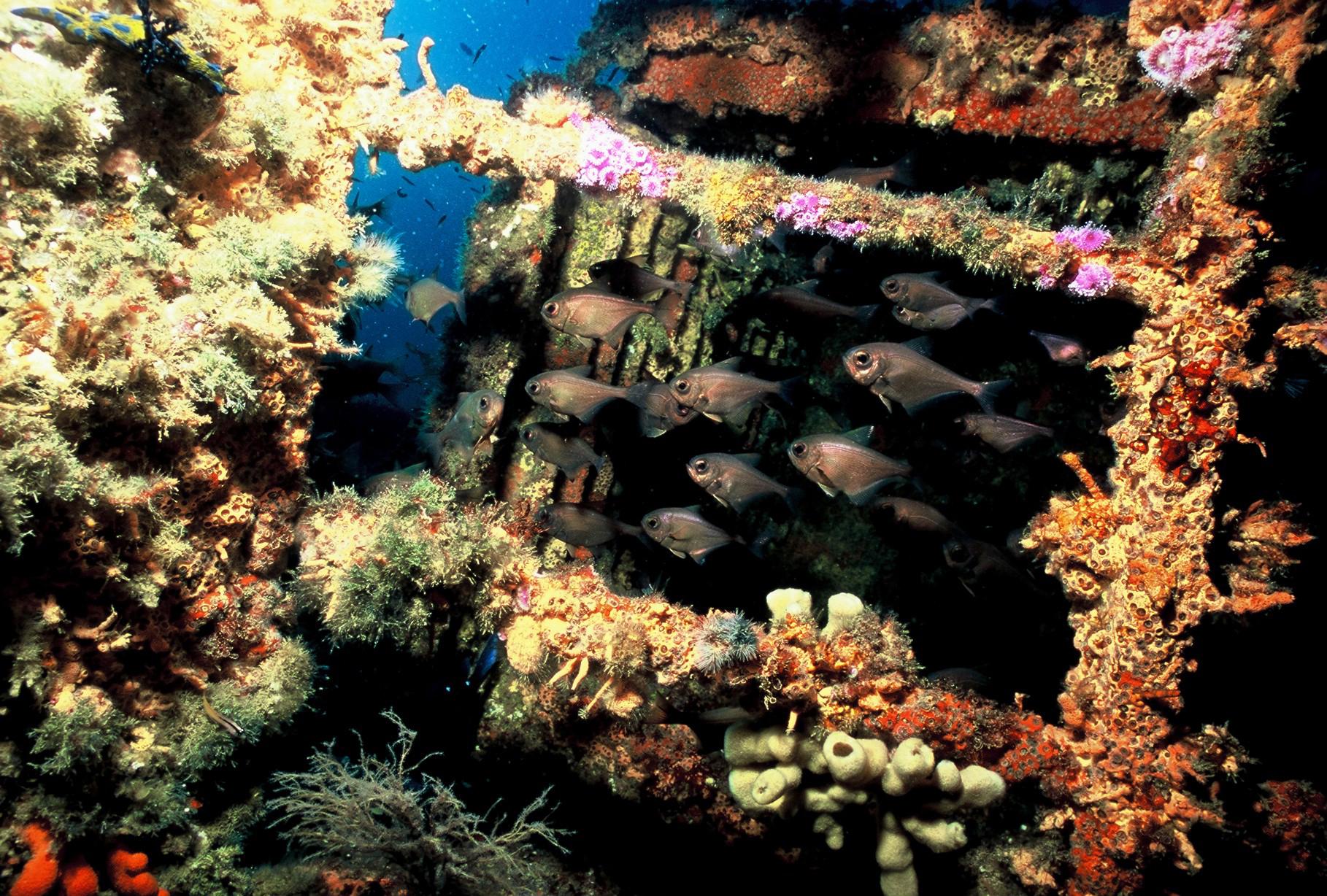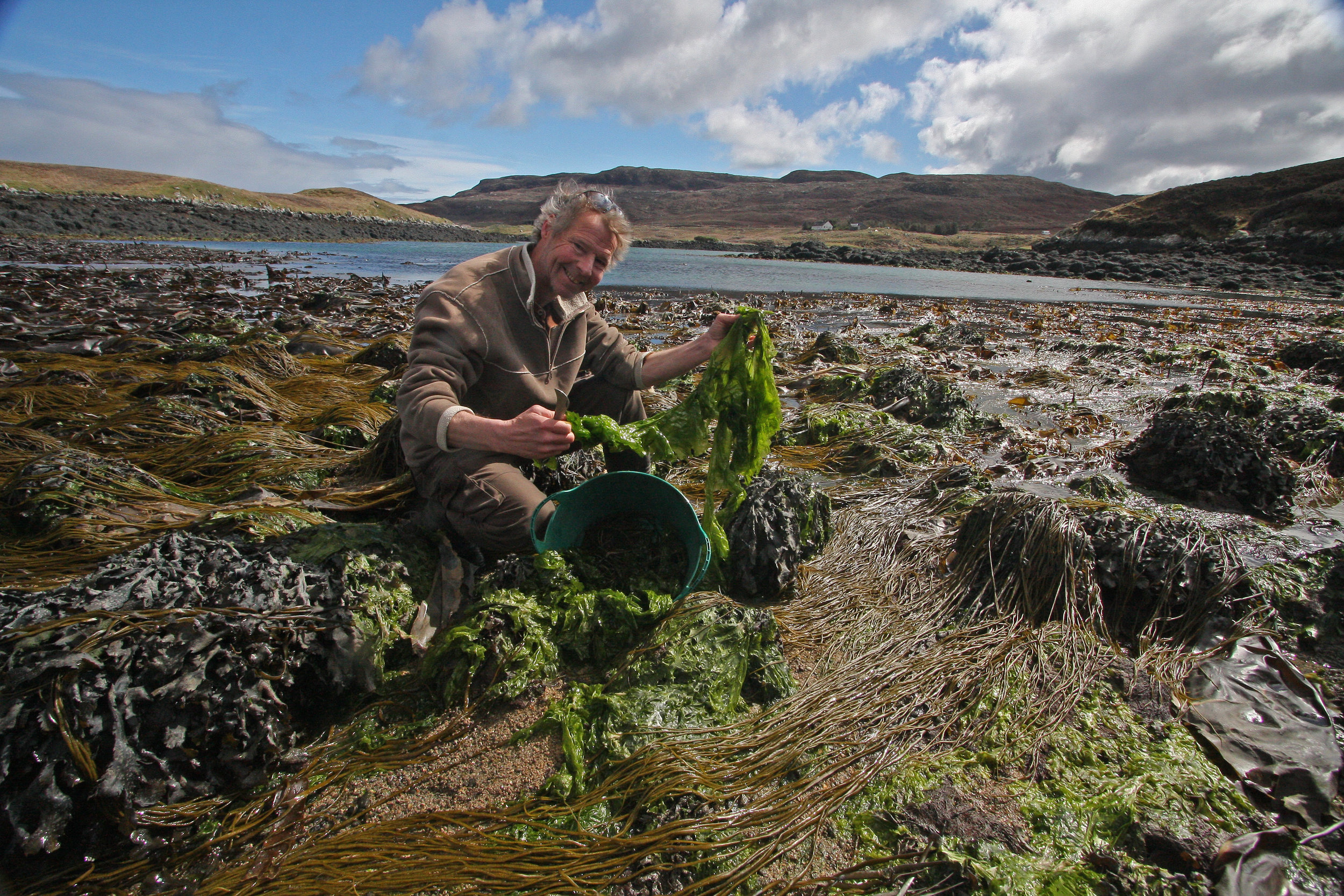Too bad the 1972 song by Three Dog Night didn't spur a big enough movement to slow down the damage being done to our world. "Joy to the fishes"? So many are shrinking in numbers along with their brothers and sisters of the deep. And in many places, that sea isn't "deep blue" anymore. Overfishing, warming waters, discarded trash, and the millions of molecules of leftover plastic being swallowed by these marine animals, are placing some on the verge of extinction.
By now you all know that this is Earth Day. Watching the news and the accompanying pictures and videos, leaves one wondering what this world will be like in a few very short years. One doesn't have to be a scientist to recognize the changing weather patterns. The increase in the number and severity of hurricanes, cyclones, tornadoes, and wildfires is evident throughout the year. We barely get over the pain of seeing the pitiful victims, the ruins of their homes and belongings, and thinking how fortunate we are to be spared such destruction -- at least this time -- when the next disaster hits planet earth.
Unfortunately, the news of the destruction still outweigh the "good news" of people and organizations working to find solutions to undo or prevent the damage we have wrought. We witness daily the effects of pollution, natural disasters, and wars. The news show CBS This Morning now has a series titled "Earth Matters", which covers "climate change across the globe." This morning's segments were on deforestation of the Amazon rainforest and what is being done to help stop it Amazon Forest, the scientists studying the changes in the sea floor in Antarctica Sea Floor Expedition, the use of solar energy by the young generation in South Africa's Energy Revolution, as well as topics on air pollution and the challenges faced by our water sources.
The fact that a portion of the Rio Grande River has been bone dry in recent times (due to drought) was particularly frightening to me. As a Texas gal, I've always believed that river would be here forever. Watch just a few of the above videos and read the articles on efforts taken across the globe to help the environment, and join in or donate to the causes.
 |
| (Rigs to Reefs - Mission Blue) |
Now that is creative! Researchers also state that they see many more porpoises around oil rigs than in the surrounding sea. If only oil companies would cease to drill in our oceans..and may we never have a disastrous oil spill like the Deepwater Horizon oil spill in the Gulf of Mexico 9-years ago this month. One of the worst oil spills in our nation's history, the impact of the environmental damage to our Gulf Coast ecosystem is ongoing.
| (plastic-pollution.org) |
The plastics which plague our environment are gradually being replaced. Many are opting out of using plastic utensils, shopping bags, water bottles, and especially straws. Many cities are banning the use of plastic bags, and recycling has become such a problem that China has begun to refuse to accept materials from the U.S. to be recycled.
The length of time required for plastic to disintegrate in our landfills as well as the danger to our sea wildlife makes replacing it a priority to many ecologists today. A nonrenewable resource, synthetic plastic production contributes not only to global warming, but the transport of the unlimited items made from it to factories at all corners of the globe also increases its carbon footprint.
 |
| (John Cunningham, JONAA's Marine Science Editor) |
"Algae bioplastics were discovered when many companies were exploring alternative sources of biofuels for reducing greenhouse gas emissions and fossil fuel consumption.
"Bioplastics or natural plastics are a variety of plastics based on renewable biomass resources which include vegetable oil, corn starch, pea starch as opposed to fossil-fuel plastic materials created from petroleum." Algae Bioplastics
Kudos to the Dutch designers, Eric Klarenbeek and Maartje Dros, who spent three years creating their biopolymer, made of local raw materials. They subsequently used materials such as organic resources like mycelium, potato starch, cocoa bean shells, and, more importantly, algae.. Algae Plastic.
A couple more items that peaked my interest:
1) We may soon be able to melt down plastic waste into fuel for hydrogen cars. (Ahem, who has a hydrogen car?) And 2) Ultra cheap printable solar panels are now available in Australia.
********************************************
More good advice from CBS This Morning. Three things you can do to help protect the environment.
1. Eat less meat. "Have meatless Mondays." Livestock are a major source of carbon emissions.
2. Cut your freeway usage. (Take a train or bus. Car pool.)
3. And of course, reduce your plastic use.
Spiritual traditions often contain good ideas to encourage us to take care of our Mother Earth:
"To truly practice Zen therefore means not leaving lights burning when they are not needed, not allowing water to run unnecessarily from the faucet, not loading up your plate and leaving food uneaten." Philip Kapleau in 365 Zen by Jean Smith
To Practice This Thought:
"Find ways to be respectful of the things you use and encounter, bearing in mind that water, food, light, and other resources are gifts."
So many people are not blessed with even these necessities of life. May we teach our children better than we were taught.
Peace and love for out planet,
Marilyn
So many people are not blessed with even these necessities of life. May we teach our children better than we were taught.
Peace and love for out planet,
Marilyn

Very good post, Marilyn, although it is a tinge depressing when we realize the scope of the problem. Thank goodness, though, that there people and organizations attempting to take better care of this planet. Thanks for your input.
ReplyDeleteA friend and former classmate wrote the following. I thought it worth mentioning..
ReplyDelete"Recently I realized that:
1. What happened to all the spiders that used to be around my house?
Not too many years ago, I recall watching "garden spiders" weaving
their webs across the outside of my screen windows, eating back in
their webs during the heat of the day, and reweaving a new one for
the dusk...catching many moths, mosquitoes, etc...plus many other
normal spiders around by my shrubs, garage, drainspouts, etc.
Now there are virtually no spiders!
2. What happened to the insects? Not so long ago, in the spring and
summer, sleeping with the windows open, I was happy to hear the
white noise of crickets and other such creatures, making quite a
loud noise.
Now there is just silence!
3. Where are all the birds? Same story as above, there used to be many,
many more. I read that up to 40% of some birds' diet consists of
spiders. Plus of course the expected insect diet. I guess there is
not as much food left for them as there was before.
Have you noticed a similar set of phenomena?"
I've had a few spiders INSIDE my house, much to my regret. At least I regretted one large spider that had taken up residence in my closet! Also, one who spread his web across the curtain topping my bedroom window. I have to admit that those two are no longer with us. However, in my kitchen there resides one or two tiny little spiders - no bigger than the head of a pin. I watch them daily (and even talk to them). A while back I had a swarm of carpenter ants (why don't the birds eat them?) outside my cottage. Every now and then one would come through the door as it was opened. I could not believe my eyes when I saw a small web stretching from the blender situated in the corner of my kitchen counter. In the web was one of the monster ants! I watched for several days as the resident spider continued to wrap the ant in its web. This spider was slightly larger than my usual ones, and one morning the ant was gone. Presumably it became a meal (or several) for the lucky spider. Needless to say, I give these tiny giant killers free rein in my kitchen.
DeleteAwwww the talents of those who come after us!
ReplyDeleteWhile we may weep of the destruction that is upon us...
Our fore fathers must have looked upon the drying plain,
And, thought that nothing ever remains the same!